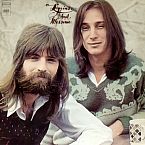Your Mama Don't Dance

Songfacts®:
- This song is a homage to the teenage rebellion songs of the '50s. It's about a kid whose parents are on the conservative side, much to his dismay (that 10 p.m. curfew is pretty tight). One night, he parks in the shadows at the drive-in movie with his date, but gets a visit from a cop, who takes him in. Seems he's doomed to be home at night when everyone else is out having fun, and it's all because his mama don't dance and his daddy don't rock and roll.
- This was influenced by a 1963 song by The Rooftop Singers called "Mama Don't Allow," which is about a kid whose mama won't tolerate guitar playing. It reached #55 in the US that year.
- Kenny Loggins and Jim Messina wrote this song early on in their partnership, writing it in the studio one day while they were waiting for their band to arrive. They didn't think much of it, but when they recorded it about eight months later, it became a huge hit in America, climbing to #4. Much to their dismay, it endured as their best-known song, which was frustrating because it was sort of a throwaway and didn't represent their sound. Loggins and Messina were both accomplished songwriters and musicians, who along with their top-notch band, made music that was far more complex in both music and lyrics. Tracks like "Angry Eyes" and "Till The Ends Meet" are what they considered far more substantial, but for many listeners, Loggins and Messina are most associated with "Your Mama Don't Dance."
- Loggins and Messina formed when Kenny Loggins, who was working as a songwriter, got a solo deal with Columbia Records. The label's boss, Clive Davis, had Jim Messina produce him, and it quickly became clear that their voices blended exceptionally well together. The first album they worked on, released in 1971, was titled Kenny Loggins with Jim Messina Sittin' In, and was at first considered a Loggins solo album with Messina in the title because as a former member of Poco and Buffalo Springfield, he had name recognition. That album sold very well, so they recorded another, this time clearly stated as Loggins and Messina. "Your Mama Don't Dance" was part of that set, and made them so successful as a team that they continued their partnership until 1976, even though they were often at odds and never thought of Loggins and Messina as a long-term project.
- The voice of the cop who orders, "Out of the car, longhair," is Merel Bregante, who played drums in their band. Michael Omartian, who later became a top producer, played the boogie-woogie piano.
-
- Elvis Presley sang a few lines from this song as part of a medley in 1974 for his album Recorded Live On Stage In Memphis. Poison returned the song to the chart in 1989 with their cover version, which reached #10 US.
- This was used in the TV series Switch in the 1975 episode "Las Vegas Roundabout," where it was performed by lounge singers in a casino. It was also used in the 2006 comedy RV, starring Robin Williams.
- Messina's music-loving mama couldn't dance because his [step]daddy didn't rock and roll. The song was inspired by Messina's upbringing in a strict household where his square stepfather thought The Beatles were weird. "My stepfather was from Arkansas and he was not much of a mover or a groover. (laughs) And my mom... my mama... she loved music. She loved Elvis Presley and Ricky Nelson. She loved race music. My stepfather was more of an Ernest Tubb, Hank Snow, Johnny Cash kind of guy. There was not a whole lot of connection or understanding with me wanting to do music other than from my mom," Messina told The College Crowd Digs Me in 2018.
"So just the line, 'Your mama don't dance and your daddy don't rock and roll...' came from me thinking about how my mother wasn't really doing what she loves to do. She couldn't do that. My stepfather was not into rock and roll. He thought The Beatles were just... weird. (laughs) Screaming, long-haired idiots, right? (laughs) So I grew up having to put up with that. And it was a fun lyric to come up with. I had no intention of it ever having any kind of social significance whatsoever other than my own experience of a kinda funky household." - When Messina first heard Poison's cover, he wasn't a fan. "It's so different than ours, and I didn't really care for it at first, didn't like the sound. Of course, that's just me being a perfectionist," he told the Columbia, Tennessee, publication The Daily Herald in 2021. "But then, I listened to the rest of their album, and then I listened to our album and thought, 'You know what, this is an extension of their art, their sound, texture, their brushstrokes. This is what their fans expect and want to hear from them,' and when I looked at it from that standpoint they hit it right on exactly what they were trying to create."
- More songs from Loggins and Messina
- More songs with relations in the title
- More songs that were an artist's first hit
- More songs that were hits for more than one artist
- More songs that make great requests at piano bars
- More songs that start with the chorus
- More songs used in movies
- More songs used in TV shows
- More songs from 1972
- Lyrics to Your Mama Don't Dance
Comments: 8
- HenryHuh. I could swear the line is "Open the door, longhair!"
- Al from Elkins Park, PaIn the lyrics:
"Out of the car long hair
Oowee, you're coming with me
Said the local police."
I always thought the line was:
"Get outta the car, long hair
Louie, you're coming with me
To the local police!"
Another lyric site has "Louise, you're coming with me, to the local police!" And says that Kenny Loggins had reused the name Louise in "Footloose"... - Barry from Sauquoit, NyOn November 5th 1972, "Your Mama Don't Dance" by Loggins & Messina entered Billboard's Hot Top 100 chart at position #89; and 11 weeks later on January 21st, 1973 it peaked at #4 {for 1 week} and spent 16 weeks on the Top 100...
It reached #19 on Billboard’s Adult Contemporary Tracks chart…
Seventeen years later Poison covered the song; and on April 9th, 1989 their version peaked at #10 {for 1 week} on the Top 100 chart...
Between April 1972 to October 1975 Loggins & Messina had ten Top 100 records; with "Your Mama Don't Dance" being their only Top 10 record...
They did have two records make the Top 20; "Thinking of You" at #18 in 1973, then succeeded by "My Music", which reached #16, also in 1973. - Esskayess from Dallas, Tx'Outta da car, Longhair!!'
- Sara from Silver Spring, MdIt was not based on "Mama Don't Allow"
- Sara from Silver Spring, MdElvis didn't cover this, he included the first two lines in a medley so it was only "partly covered" by Elvis. Kenny Loggins has sung it in it in his various concerts often interloping other songs in the medley.
- Garrett from Nashville, TnThis song sounds very influenced by the Everly Brothers.
- Ken from Louisville, KyJim Messina was working as an "A&R" man for Columbia Records and when they signed Loggins, he was assigned to work with him. During Loggins' first recording sessions for Columbia, Messina was there to help with vocal harmonies and production. The pair worked so well together the album was named "Kenny Loggins with Jim Messina Sitting In". Columbia was so pleased with the results that they promoted them as a duo and shortened the album name to "Sitting In".
More Songfacts:
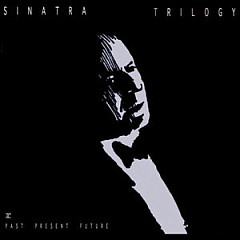
New York, New YorkFrank Sinatra
Frank Sinatra was 64 when he had his last hit: "New York, New York." The song pegged him to New York City, leaving Las Vegas to Elvis.
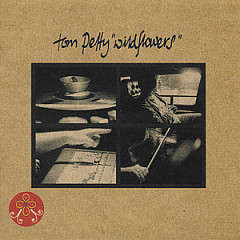
You Don't Know How It FeelsTom Petty
MTV reversed the word "joint" in Tom Petty's "You Don't Known How It Feels" so it was unintelligible, but gave the video a VMA anyway.
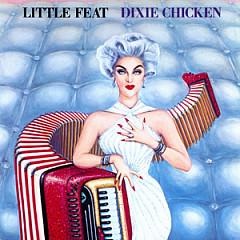
Dixie ChickenLittle Feat
The Dixie Chicks got their name from the Little Feat song "Dixie Chicken." In 2020 they became "The Chicks" because Dixie refers to the American South in times of slavery.
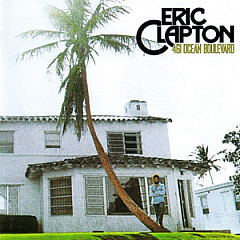
I Shot The SheriffEric Clapton
Eric Clapton's only Hot 100 #1, either solo or with one of his many bands, was his cover of Bob Marley's "I Shot The Sheriff."
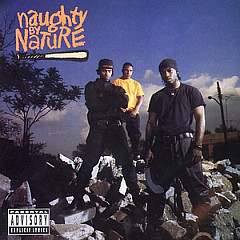
O.P.P.Naughty by Nature
The Naughty by Nature hit "O.P.P." doesn't have any curse words, but many oversensitive radio stations played a "clean" version with the word "kitten" edited out, surely the first time that word was censured.
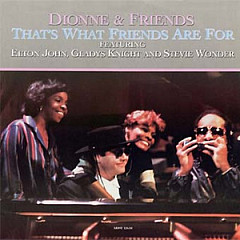
That's What Friends Are ForDionne & Friends
Elton John didn't win a Grammy until 1986, when he got one for singing on "That's What Friends Are For."
Editor's Picks
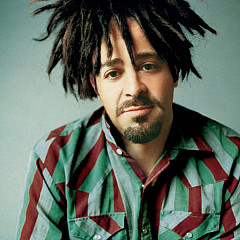
Adam Duritz of Counting CrowsSongwriter Interviews
"Mr. Jones" took on new meaning when the song about a misguided view of fame made Adam famous.
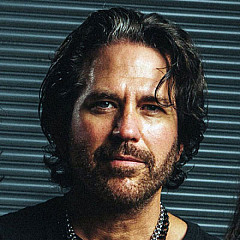
Kip WingerSongwriter Interviews
The Winger frontman reveals the Led Zeppelin song he cribbed for "Seventeen," and explains how his passion for orchestra music informs his songwriting.

00s Music Quiz 1Music Quiz
Do you know the girl singer on Eminem's "Stan"? If so, this quiz is for you.

Brenda RussellSongwriter Interviews
Brenda talks about the inspiration that drove her to write hit songs like "Get Here" and "Piano in the Dark," and why a lack of formal music training can be a songwriter's best asset.
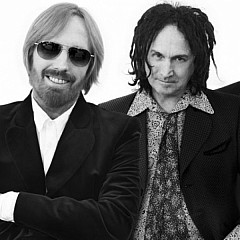
Mike CampbellSongwriter Interviews
Mike is lead guitarist with Tom Petty & the Heartbreakers, and co-writer of classic songs like "Boys Of Summer," "Refugee" and "The Heart Of The Matter."
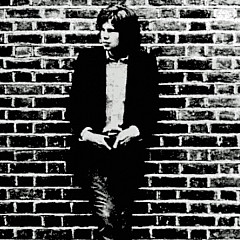
The Real Nick DrakeSong Writing
The head of Drake's estate shares his insights on the late folk singer's life and music.

